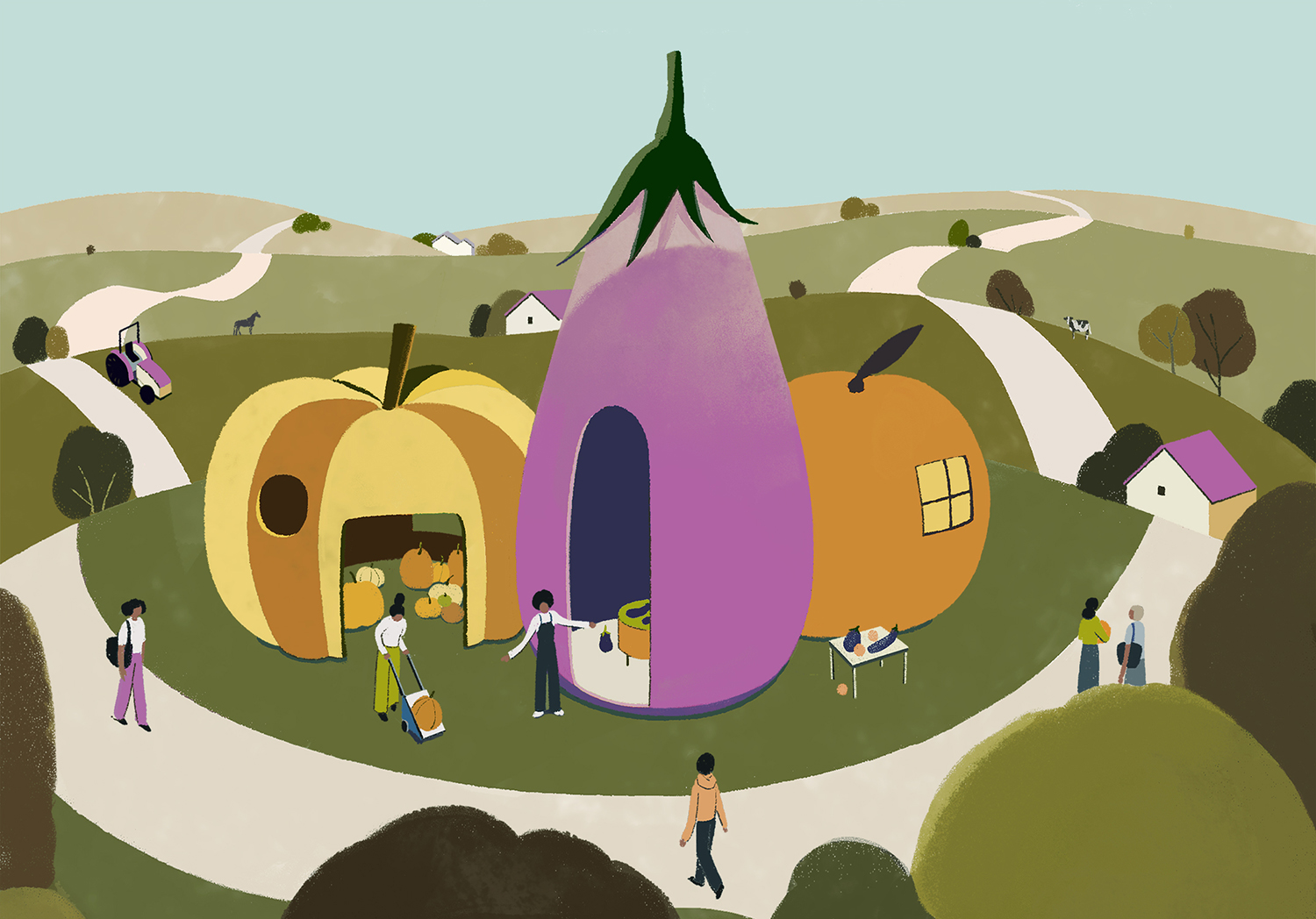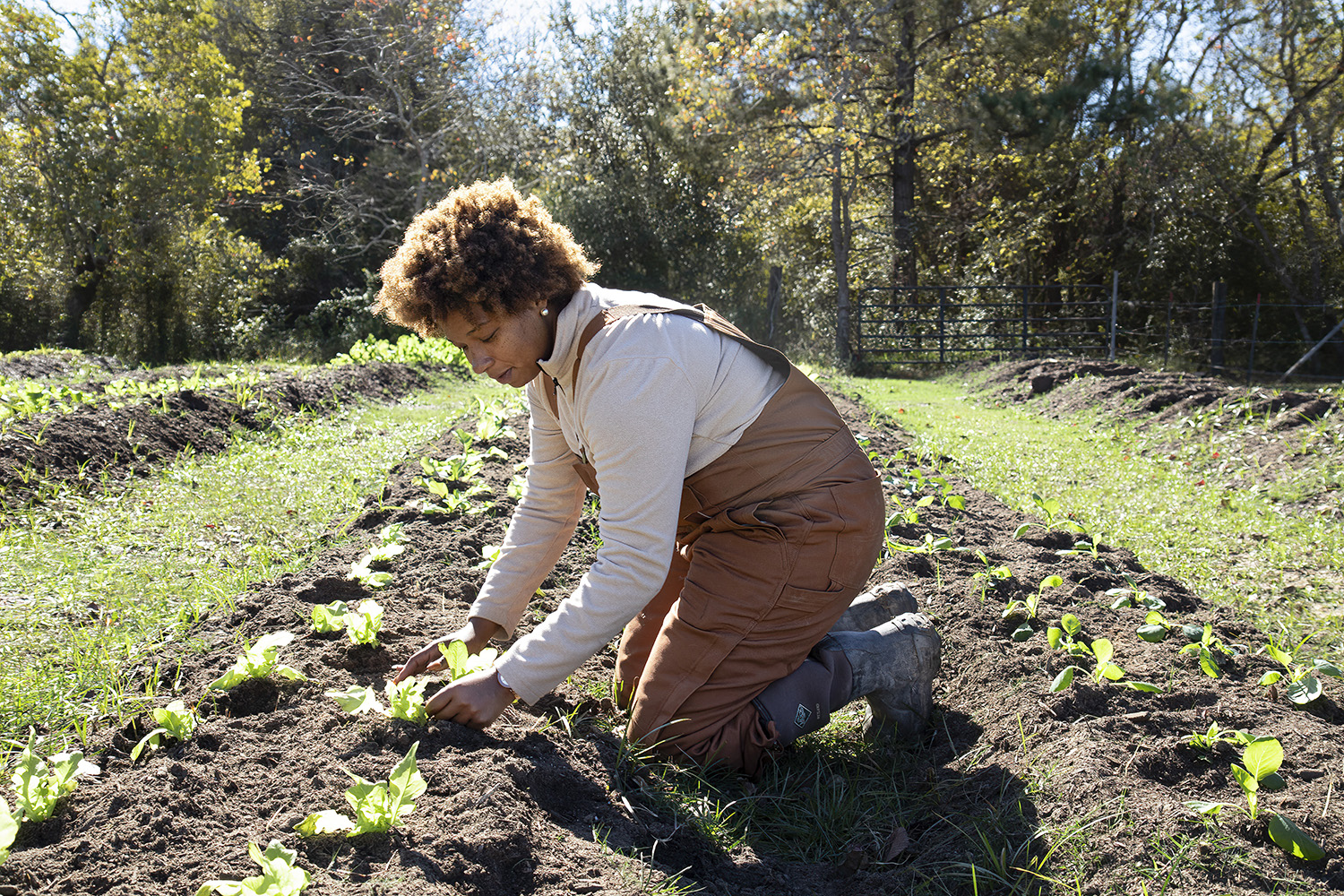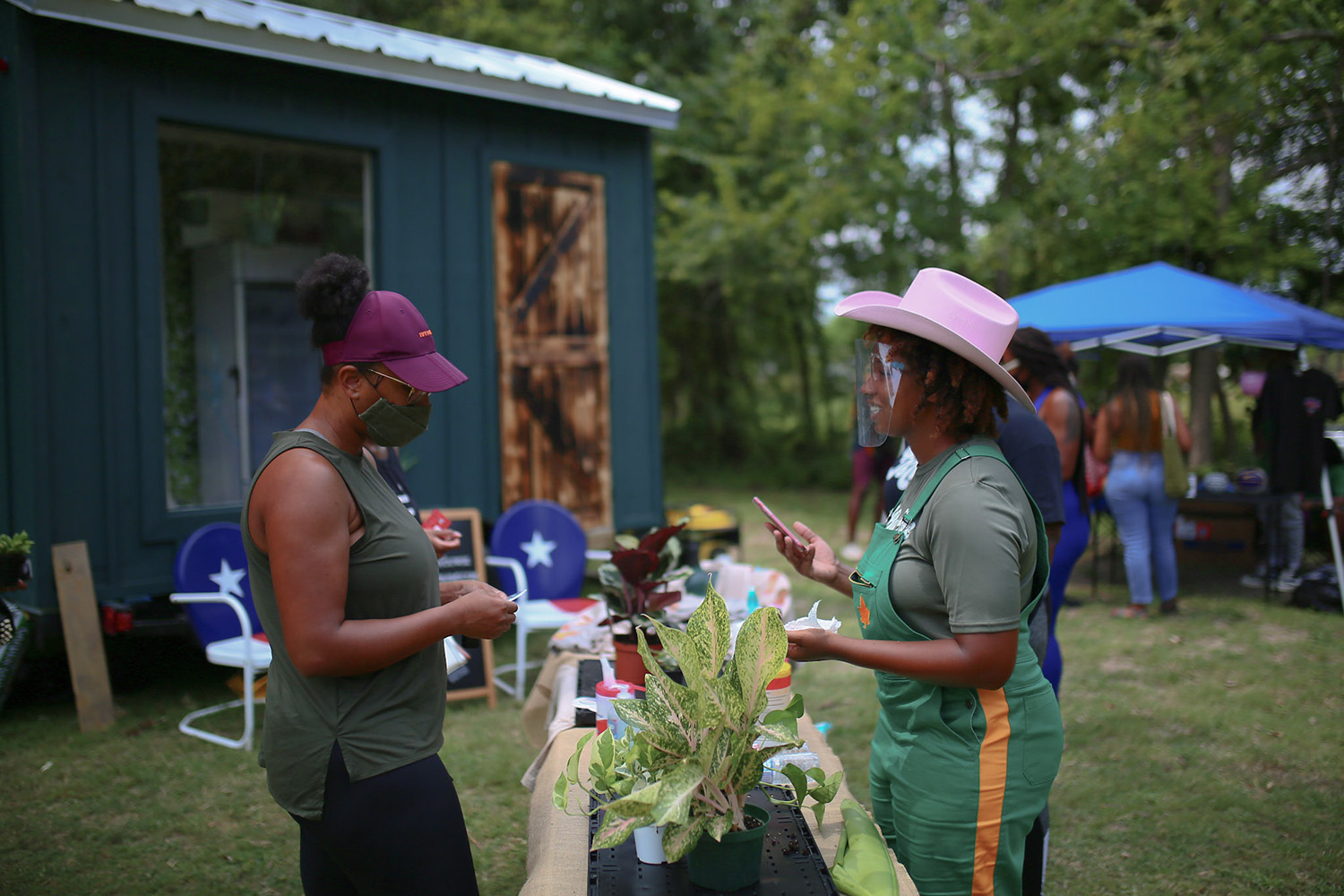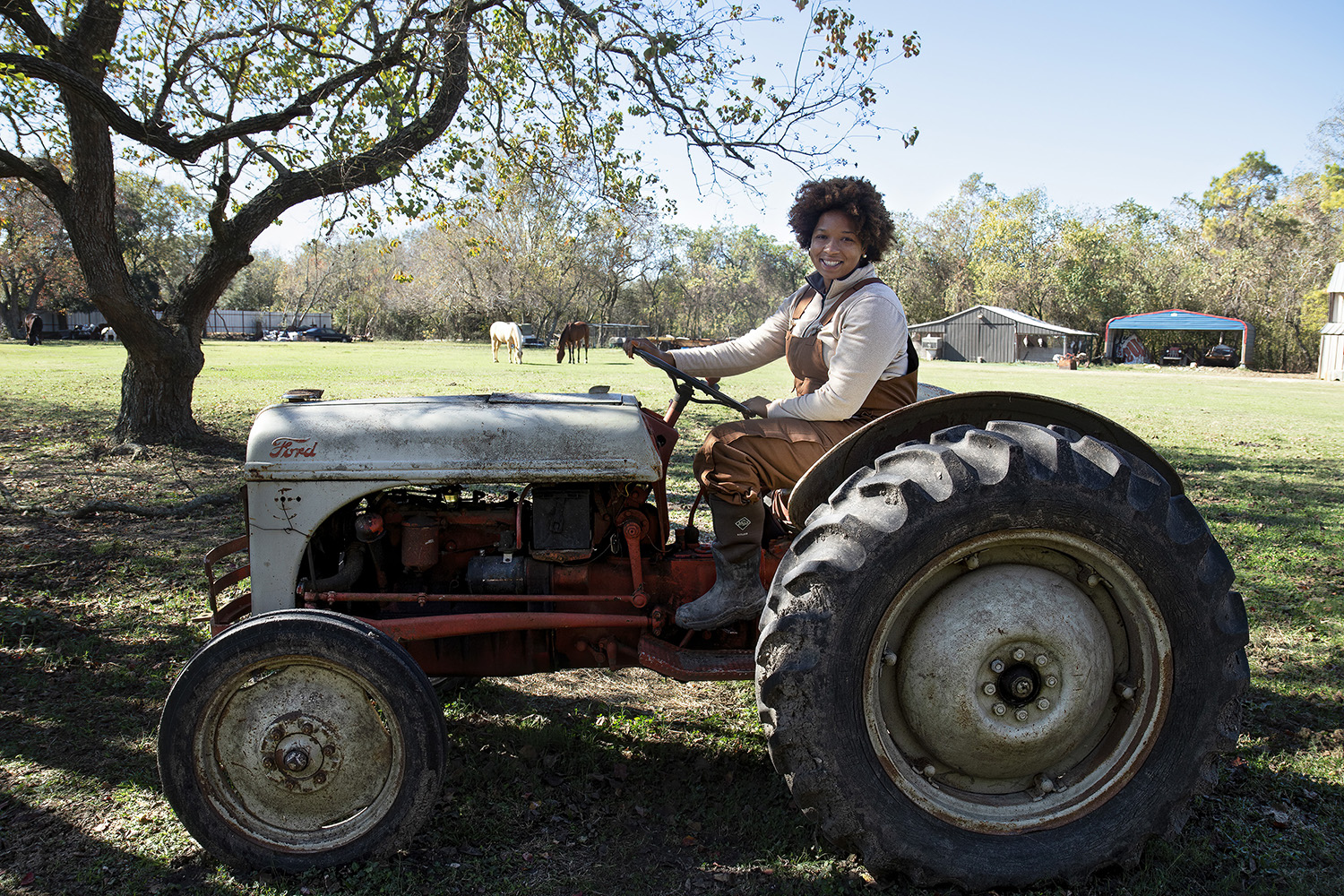Ivy Walls delivers free fruits and vegetables in a neighborhood that lacks healthy food options. After COVID-19 hit, she realized her deliveries were even more important.

Illustration by Ard Su
Listen to Ivy Walls' story
When Ivy Walls got a message that she was on Beyonce.com for winning a Black Parade Grant, she screamed with excitement. At that moment, she knew quitting her job in epidemiology to work the family farm was the right move.
The Walls family farm is in the South Houston community of Sunnyside. The predominantly Black community is classified by the federal government as a food desert – a low-income area where residents have to travel more than a mile to access a supermarket. Sunnyside residents lack access to fresh fruits and vegetables, and the area has been particularly hard hit during the pandemic.
Walls, whose family has been farming since the Great Depression, started growing cucumbers and okra in her parents’ backyard to pass out to her neighbors. In February, after she moved back home, her vision began to grow along with the vegetables.
“During that process, I realized how much I loved being back in the soil and working, working the earth,” Walls says. “I moved over to our family’s 5 acres.”

Originally from the Houston suburb of Pearland, Ivy Walls moved to Sunnyside after graduating from Texas Prairie View A&M University with a bachelor of science in biology. (Photo by Ray Ruiz)
Her goal was to plant more leafy green plants and vegetables across the widespread land by March. However, her plans transitioned after COVID-19 spread.
In addition to lacking access to healthy food options, Sunnyside is one of Houston’s leading COVID-19 hotspots, according to the Centers for Disease Control and Prevention.
Because of her job working in a hospital and after getting COVID-19 herself, Walls realized her farm could provide the nutrition needed to help keep residents healthy during the pandemic.
“If you’re not [eating], you know, proper produce, you’re not going to be able to fight off the virus,” she says.
Walls quit her job to focus on the farm in August. However, she still needed money to start a greenhouse and mobile unit to safely deliver fresh fruits and vegetables throughout her community. She started a GoFundMe to spread the word to her 10,000+ followers on social media.
When she woke up on Aug. 17, she was in shock that she left her job. Then she got a text message telling her she had won a $10,000 grant from Beyonce and the NAACP.
“I was just screaming,” Walls says. “It was just like a confirming kind of feeling that like you’re supposed to be here doing this mission and fulfilling this purpose.”
With a complete greenhouse and mobile unit, Walls has been able to provide her neighbors fresh fruits and vegetables for free. In addition to continuing her grandparents’ legacy of giving and farming, Walls has found community within Sunnyside.
“Sunnyside was my place to go for all things culture-wise,” she says, describing trips to the beauty supply store and family reunions during her childhood.
Walls adds to the culture with her plant pop-up shops, where people can socialize and buy new plants. She says the events have helped the neighborhood reconnect with nature and the gardening experience.
Walls is just one contributor to the growing community of farming and agriculture in Sunnyside. She has joined fellow Prairie View A&M grads and others who studied biology to work together to “heal the community.”
“My neighbors, they do yoga and mental wellness [events], those kinds of things,” she says. “All around, we’re going to do our best to do our best.”

Walls hosts plant pop-up shops throughout the year where people can get their first cactus or starter plant to add to their personal garden. (Photo by Lenard Smith Jr., courtesy of Ivy Walls)

Walls uses her grandfather’s tractor. Her grandfather also used a produce truck to deliver vegetables during the Great Depression. (Photo by Ray Ruiz)
